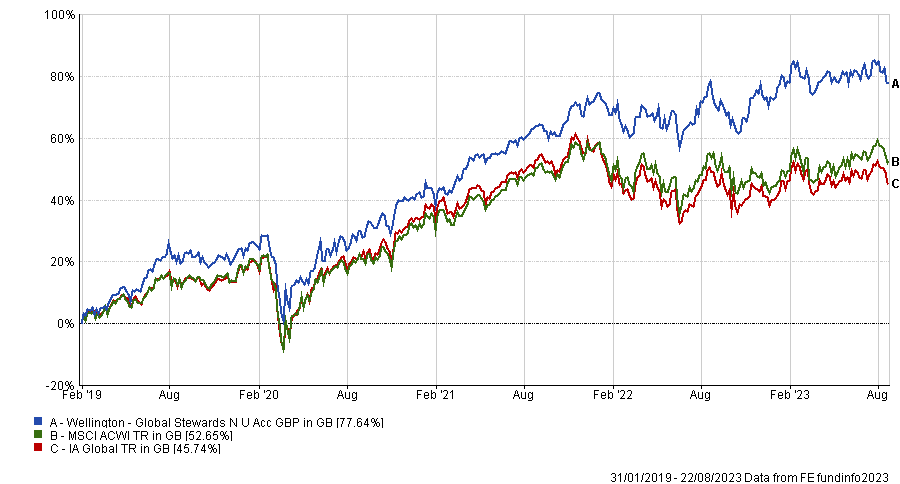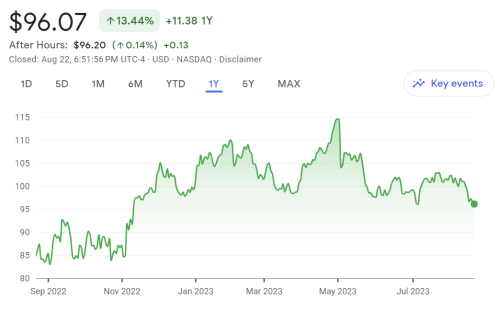Weighing up the strength of a company’s management team is a crucial part of deciding whether to invest in a stock, according to Wellington Global Stewards manager Yolanda Courtines.
By placing strong leadership as a defining factor in her investment process, Courtines generated a 77.6% return since launching the $1.4bn fund in 2019, storming 31.9 percentage points ahead of the IA Global sector.
Here, she tells Trustnet why poor management decisions made her sell out of one of her top holdings and how key-man risk is her biggest red flag.
Total return of fund vs benchmark and sector since launch

Source: FE Analytics
What is the fund’s objective?
At the very highest level, Global Stewards is about investing in companies with high returns on capital, where there's evidence of strong stewardship that can help tilt the odds in favour of those high returns on capital being sustained. That's the heart of the philosophy.
I think our long-termism really separates us from our peers. I think a lot of our peers try to time markets and focus on a short term.
Have you had to drop any names prematurely?
Ultimately, I would call attention to an 8% name turnover since the start of the strategy. We're coming up on five years, so that gives you a sense of the number of names that have exited.
It’s usually been a mix of returns and stewardship – a breakdown in returns tends to signal a breakdown in stewardship and we will then think about whether the issues are temporary in nature, or if there is something more fundamental underway.
Have you removed any names recently?
We exited Starbucks in September last year. It is still one of our top contributors, so it was a very good stock for us, but we were really concerned about how Starbucks was engaging with stress around their labour force.
It was mostly about the workers’ desire to unionise and how management was engaging with them to ensure there was a more constructive relationship. We felt like they didn't have sufficient focus on what their goals are and what a good outcome would be.
There was also a CEO change during that same period and we did not get confidence in our engagement with the board as to why that was the right appointment.
Share price of Starbucks over the past year

Source: Google Finance
What do you look out for in management?
What we really look out for is a diversity of perspective, really strong outside challenge and a balance of power so that all voices can be heard.
No company is perfect and all companies will face adversity. What we're looking for is a strong and proactive response to adversity because that is what does plays the most important role in defending the stock price.
What is the biggest red flag you come across?
You need to be careful of strong leadership sometimes because it can end up giving you key man risk. What you want is a breadth of strong leadership across the management team.
We do avoid names where there's really one overbearing character in a leadership role. That is a big red flag for us because if anything were to change there, it would take a lot of value away from the stock.
What are your interests outside of stock picking?
We spend enough time on screens and looking at paper so I like being outdoors and hiking in nature. I grew up overseas and I've lived in lots of different places so I love languages and spending time in other cultures.





